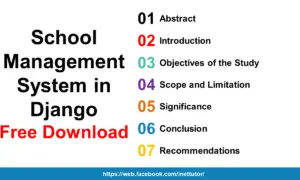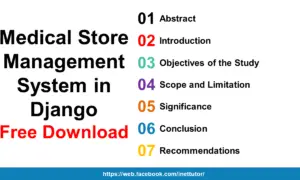Vehicle Service Management System in Django
Abstract
Table of Contents
Regular vehicle servicing helps vehicle owners prevent unexpected vehicular malfunctions. Identifying vehicle problems at an early stage is essential before they’ll turn into significant issues. Vehicle owners tend to visit vehicle garages to enquire about vehicle servicing. Vehicle mechanics check the vehicle’s vital components and repair issues to ensure that they are in good shape and will not fail unexpectedly.
The researchers conducted the study to assess how vehicle service shops or garages perform daily operations and transactions. The researchers gather initial data and found out that most vehicle shops or garage still uses manual processes in handling their day-to-day transactions. Recording of customer records, monitoring of vehicle repair progress, vehicle service updates, transactions with clients, and billing are still done manually. Continuous use of manual methods will slow the operation and response time of the garage to the inquiries of the customers. The researchers have seen the need to upgrade the way how vehicle servicing garage operates. Inlined with this, the researchers aim to develop a Vehicle Service Management System using Django.
The capstone project, “Vehicle Service Management System in Django” will automate the operations and day-to-day transactions of the vehicle servicing garage. The system will electronically streamline processes including managing vehicle service orders, keeping maintenance records, managing customer records, and transaction records, servicing updates, and billing.
The implementation of the system will both benefit vehicle garages and customers. For vehicle garages, utilizing the system to operate the business will help them grow and increase business efficiency. For customers, they can easily and conveniently make transactions for vehicle servicing.
Introduction
The capstone project, entitled “Vehicle Service Management System in Django” is designed for vehicle service management automation. The said project will be built in Django that will offer allow vehicle garage to electronically process Recording of customer records, monitoring of vehicle repair progress, vehicle service updates, managing vehicle service orders, keeping maintenance records, transactions with clients, and billing.
Vehicle garages are becoming popular as the number of vehicle owners is increasing. Vehicle owners often enquire about vehicle services in garages to check and repair problems in their vehicles. Regular vehicle servicing will help vehicle owners ensure that their vehicles function well and will not fail unexpectedly. As of today, most vehicle shops or garage still uses manual processes in handling their day-to-day transactions. Recording of customer records, monitoring of vehicle repair progress, vehicle service updates, transactions with clients, and billing are still done manually. This type of transaction is time-consuming for both, vehicle garages and customers. Customers would need to personally visit garages to process service orders and other essential transactions to complete inquiries of vehicle servicing. Continuous use of manual methods will slow the operation and response time of the garage to the inquiries of the customers. The researchers have seen the need to upgrade the way how vehicle servicing garage operates.
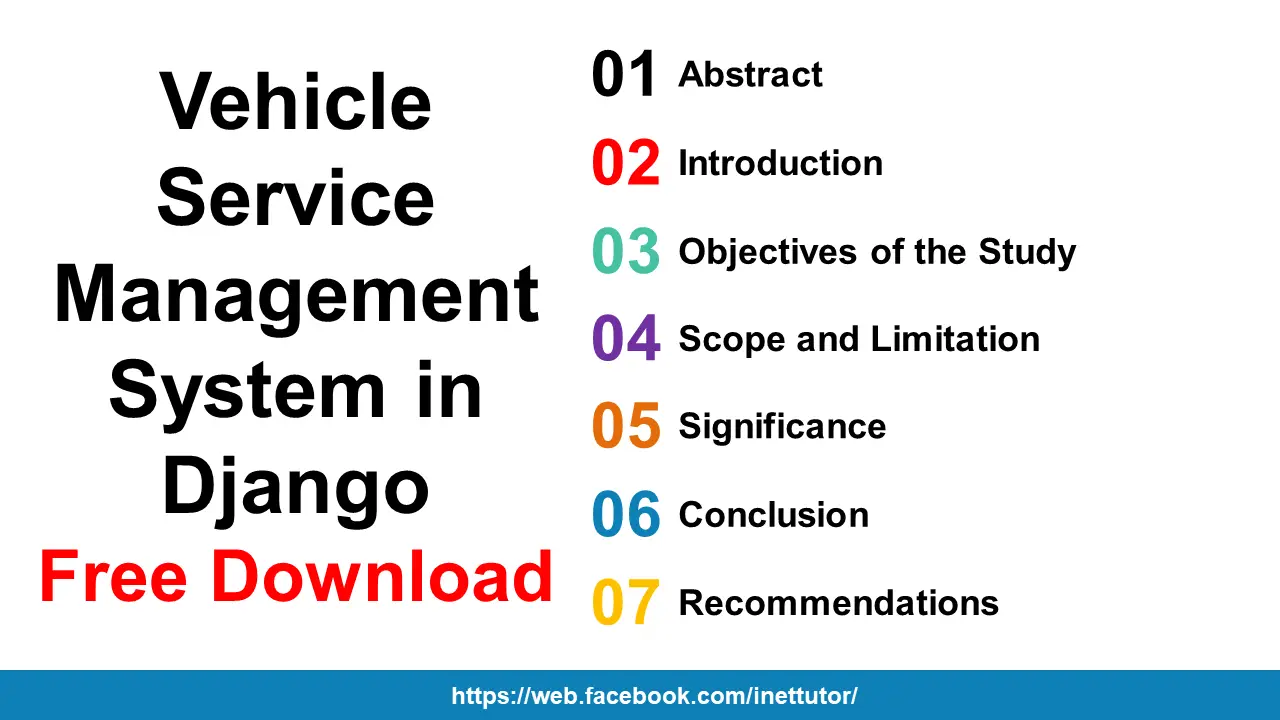
Proposed Solution
To resolve the aforementioned concerns, the researcher proposed the development of the Vehicle Service Management System in Django. The system will automate processes in managing all aspects of transactions that take place in a vehicle garage. Transactions including Recording customer records, monitoring of vehicle repair progress, vehicle service updates, managing vehicle service orders, keeping maintenance records, transactions with clients, and billing. The proposed project will eliminate the manual operations and transactions in the vehicle service shops and garages. The system will serve as a platform of transactions that are managed by an administrator and also access by the clients and vehicle mechanics. The proposed system will increase business efficiency and overall customer satisfaction in availing vehicle servicing.
Objectives of the Study
General Objective – The main goal of the project is to design, develop and implement a system that will automate daily operations and transactions in a vehicle service garage.
Specifically, the project aims the following objectives:
- To develop a system that will allow all-in-one management of vehicle service transactions.
- To develop a platform where customers inquire about vehicle services.
- To eliminate paper works and manual workloads of vehicle garage administrators.
- To store vehicle service records in a centralized database.
- To develop a system that is efficient and reliable to use for management.
- To evaluate the system in terms of user acceptability, effectiveness, quality, productivity, and reliability.
Scope of the Study
This study covers the research about vehicle servicing and the development of vehicle service management systems in Django. The researchers mainly focus on developing a system that will simplify and automate daily operations and transactions in a vehicle garage. The system will allow easy, convenient, and efficient vehicle service management. Vehicle garage administrators, mechanics, and customers will participate as respondents to the study.
Significance of the Study
The success of the project is significant for the following:
Vehicle Service Garage/Shop. The success of the project will directly benefit them. The system is intended for them to easily and efficiently operate daily activities and transactions of the garage, as well as timely, attend to customer inquiries and vehicle service orders.
Vehicle Mechanics. The system will help them keep track of the vehicle services and reparation they need to accomplish. The system will provide them with an organized record to guide them in completing their work.
Customers. They can easily and conveniently enquire about vehicle servicing. By having the system, they can save time and effort for the regular servicing of their vehicles.
Researchers. The success of the study will is an additional achievement for them and at the same time harness their skills and knowledge as researchers.
Future Researchers. The study will serve as their reference for future development of updates for the system or if they wish to conduct the same study.
Development Tools
The capstone project entitled “Vehicle Service Management System in Django” is a system that allows vehicle service garage to electronically manage their daily transactions. The system will automate the keeping of repair inquiries records, payments, services offered, and other transactions of the shop.
This article will provide you with an idea on what are the forms to be included in a Vehicle Service Management System in Django.
Documentation of the project is available upon request (chapters 1 to 5). Feel free to message us for the complete documentation of the project.
Project Highlights
A vehicle Service Management System is a database-driven system that will automate the processes in managing records of transactions made in the vehicle service garage. The system will help in providing accurate and secure record management.
The following are the advantages of the system:
- Automated Business process- records management, payment transaction, and report generation is much easier and convenient to process
- Records Management – it is a database system that makes the records electronic, safe, accurate, reliable, and fast.
- Report Generation – the system automatically generates and provides real-time reports on the status of the inquired repair services.
How the System Works
This section of the paper will present the forms, modules, and user interface of the Vehicle Service Management System developed in Django. This paper will explain the features and how the system works.
Homepage – the system’s homepage will first be displayed when a user accesses the Vehicle Service Management System.
Shown below is the design of the Vehicle Service Management homepage.
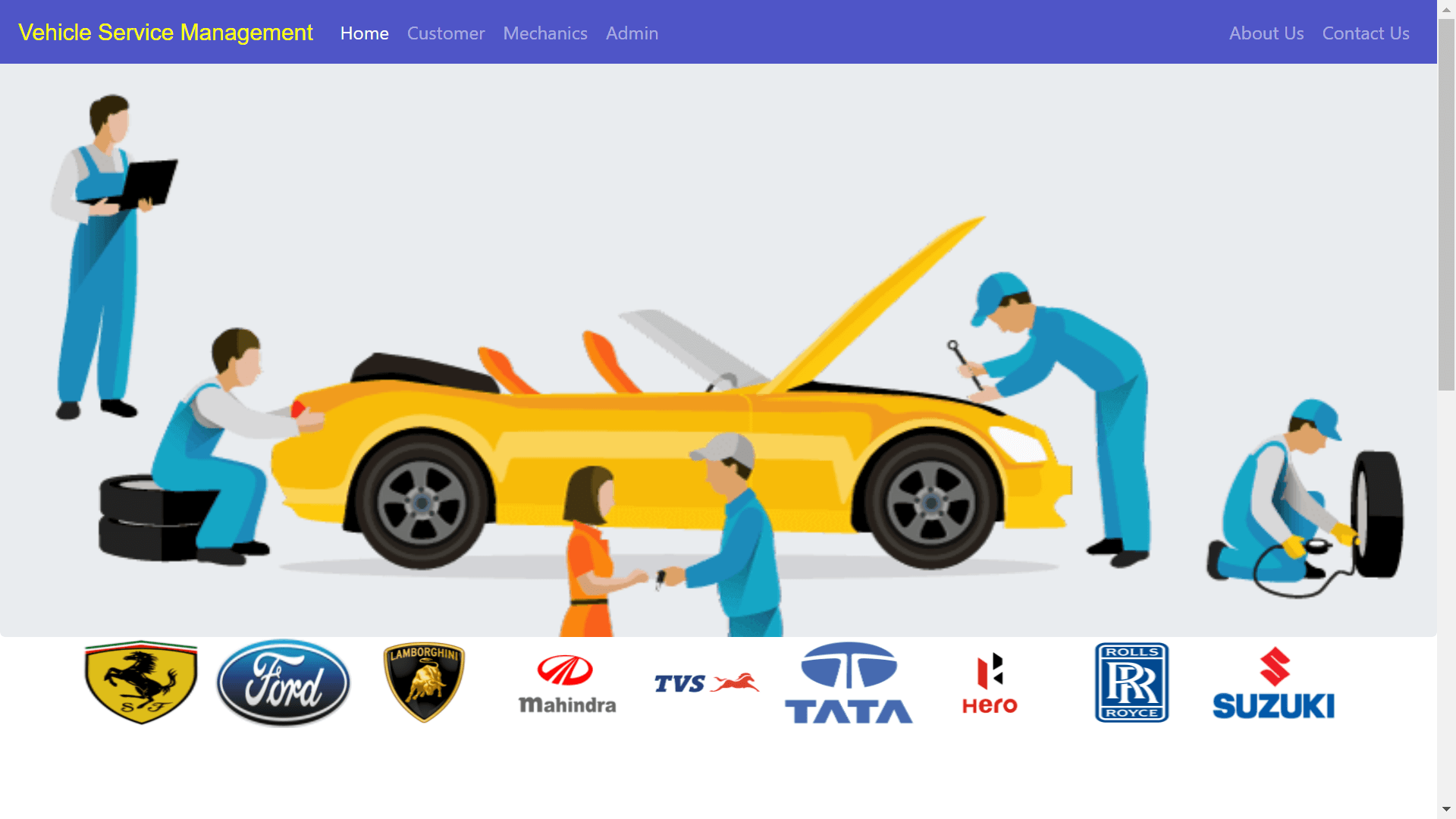
Admin Dashboard – This dashboard serves as the main page of the admin when logged in to the system. Records of vehicle services are displayed in the dashboard.
Specifically, the administrator’s dashboard displays the following information:
- Total Customer
- Total Mechanic
- Total Enquiry
- Total Feedback
- List of Recent Customer Enquiry
The image shown below is the design of the system administrator’s dashboard.
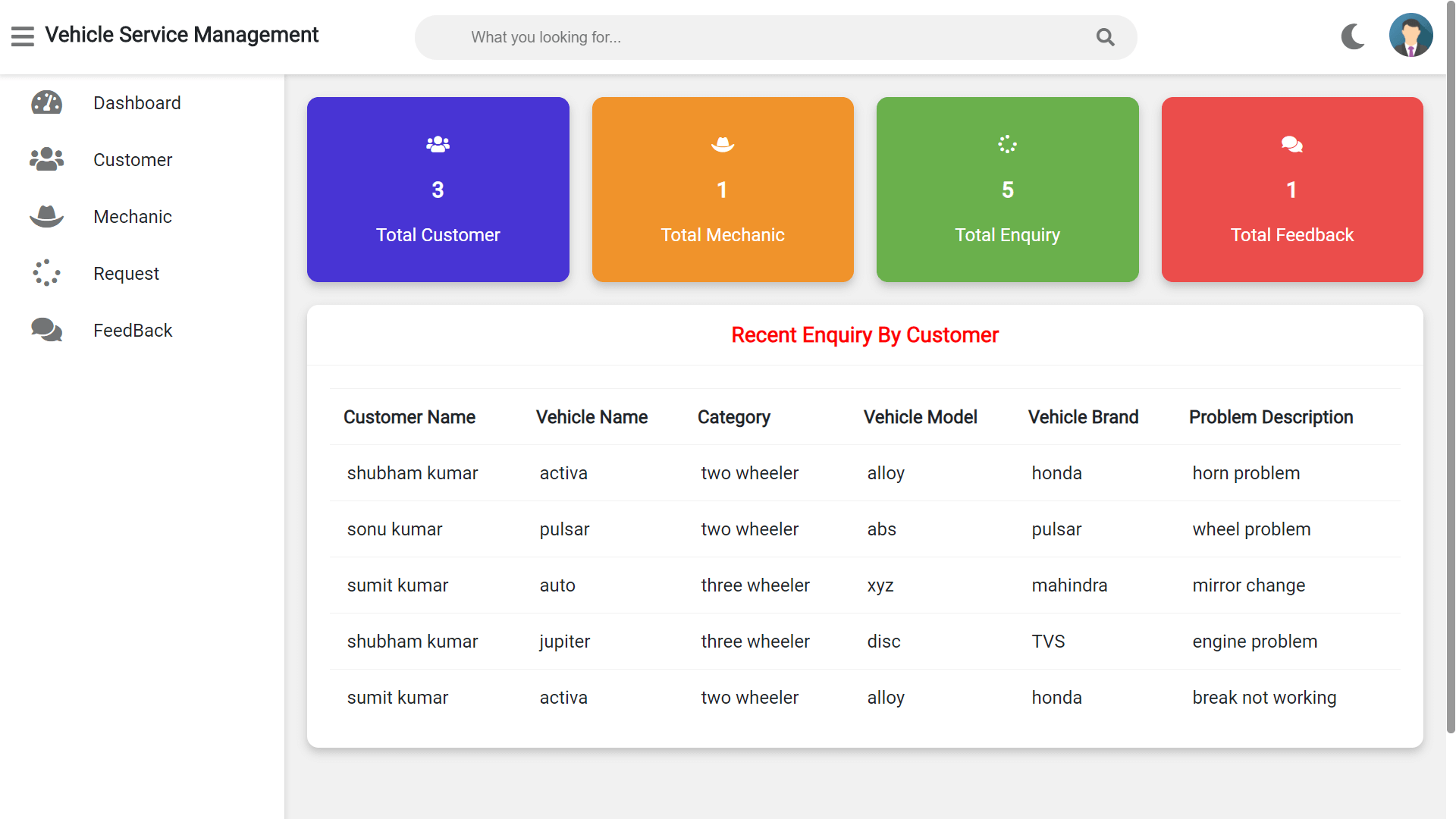
Customer Dashboard – this dashboard displays records and tools that a customer can use to enquire about mechanic services for their vehicles.
The dashboard mainly displays the following information:
- # of New Request Made
- # of Vehicle Progress in Repair
- # of Vehicle Repaired
- Total Bill
Shown below is the layout of the customer’s dashboard.
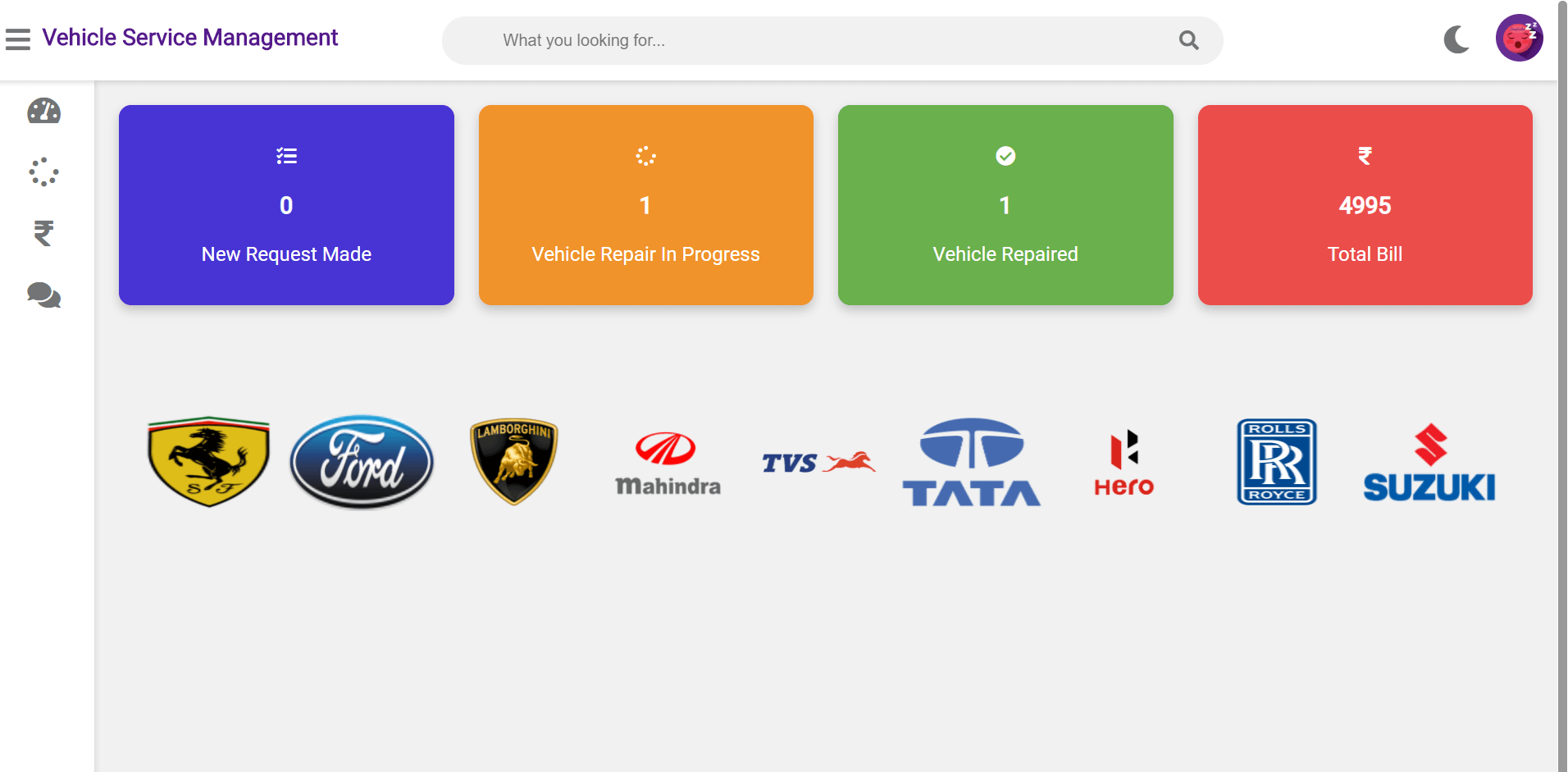
Mechanic Dashboard – when the mechanic logged in to the system, they will be directed to this dashboard. The dashboard displays records of their works.
The dashboard specifically displays the following information:
- # of New Work Assigned
- # of Work in Progress
- # of Work Completed
- Salary
The image below is the Mechanic’s Dashboard design.
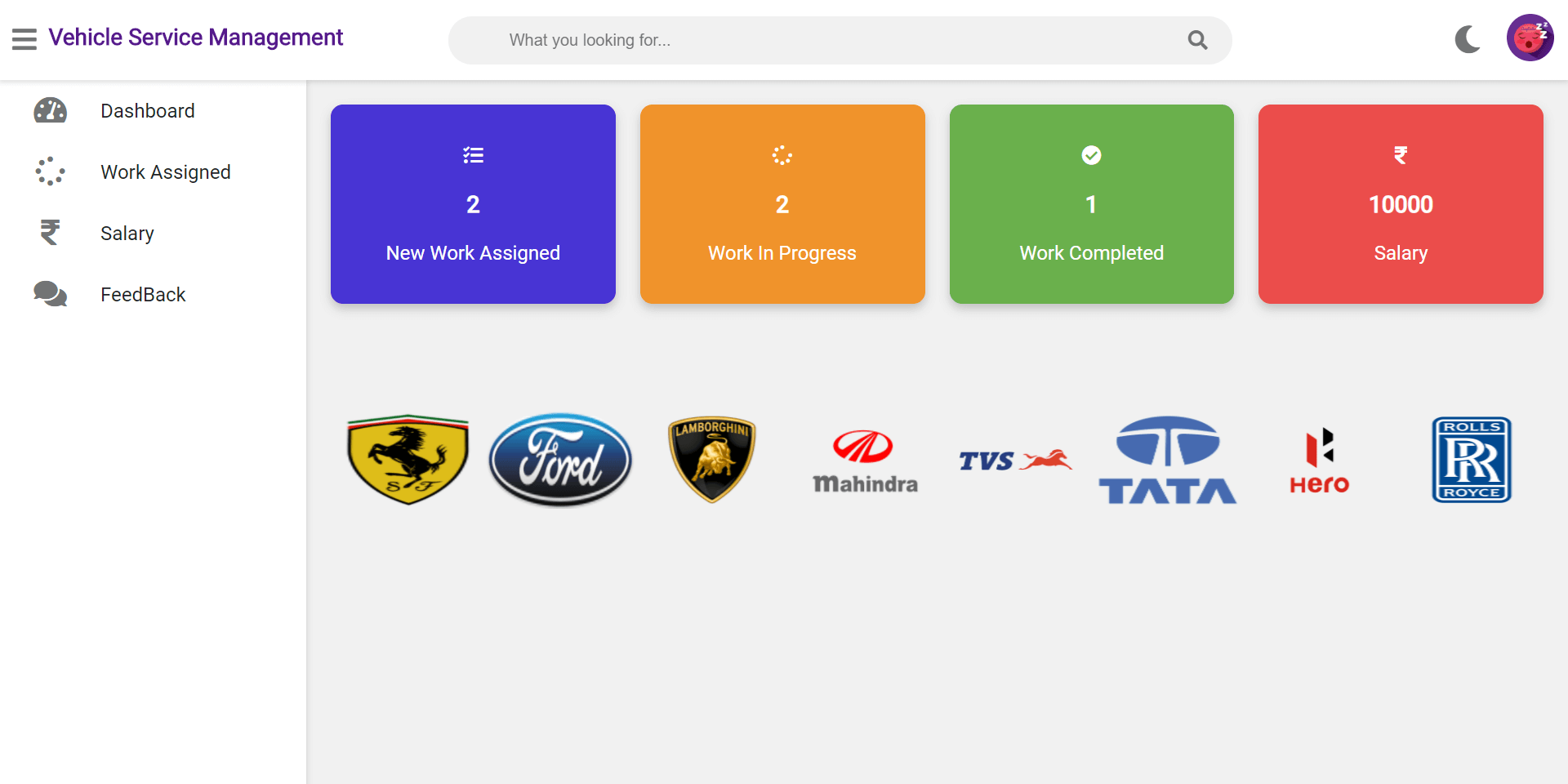
Conclusion
Vehicles need to be serviced to ensure that they are in good shape and function well. This study was conducted to develop a Vehicle Service Management System in Django. The developed system was presented to the respondents and target end-users for assessment. The result of the study showed that the developed system met the needs and requirements of the respondents and intended users. The result showed that the respondents rated the system satisfactorily in terms of user acceptability, effectiveness, quality, productivity, and reliability.
Hence, the researchers concluded that the system is effective for vehicle service management automation. The system will both benefit vehicle garages and customers. For vehicle garages, utilizing the system to operate the business will help them grow and increase business efficiency. For customers, can easily and conveniently make transactions for vehicle servicing.
Recommendations
The significant result of the study prompted the researchers to strongly recommend the implementation of the system. The implementation of the system allows vehicle service garage to electronically manage their daily transactions. The system will automate the keeping of repair inquiries records, payments, services offered, and other transactions of the shop.
The researchers specifically recommend the following:
- Vehicle service garages and shops should install the system to electronically transform their daily operations and transactions.
- The researchers recommend that mechanics and clients sign up to the system to easily and conveniently accomplish vehicle services.
- The implementation of the system is highly recommended to simplify vehicle service operation and increase business efficiency.
You may visit our Facebook page for more information, inquiries, and comments.
Hire our team to do the project.
Credits to the developer(s) of the project.
Facebook page: https://www.facebook.com/sumit.luv/
Youtube Video Demo: https://www.youtube.com/watch?v=z_aZafgno38
Subscribe to their youtube channel: https://www.youtube.com/channel/UCrLWsy9v5KNZU0t0kjQ3Kuw
Download link: https://github.com/sumitkumar1503/vehicleservicemanagement

